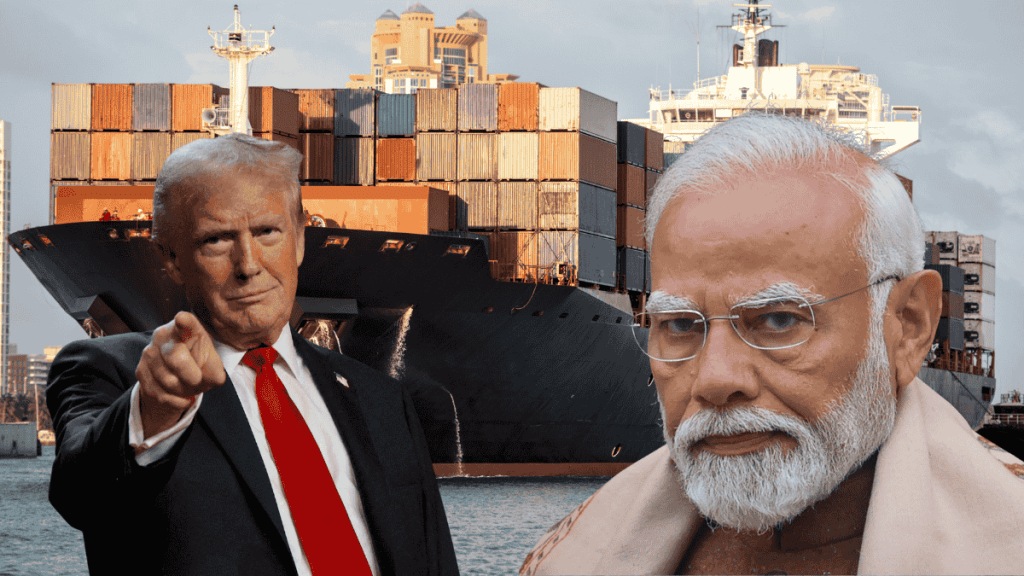The White House has confirmed the intent of the “sanctions on India” over Russian oil purchase after a series of diplomatic meetings between US President Donald Trump and his Russian and Ukrainian counterparts Vladimir Putin and Volodymyr Zelenskyy, respectively.
US officials have long been beating around the bush on how the country was particularly focussing on India over its trade relationship with Russia despite the nation’s war in Ukraine. Meanwhile, the Indian Government hit back America with questions surrounding “hypocrisy” given its own ties with the war aggressor.
Although India is the second-biggest buyer of Russian fuel, China, i.e the country topping that list, hasn’t suffered the wrath of additional tariffs. And yet, the tariffs on the South Asian nation in question have since been doubled to 50%, making for the highest duty on the global tariff chart imposed by the US.
Without mincing its words this time, the White House finally confirmed, while actually spelling out the word “sanctions,” that its additional tariff threat on India was actually meant to exert secondary pressure on Russian President Putin to end the ongoing attacks on Ukraine.
White House confirms the intent of ‘sanctions on India’ over Russian oil purchase
On Tuesday (local time), US White House Press Secretary Karoline Leavitt said that Trump imposed the additional 25% tariffs on top of the existing 25% on India to pursue Russia to end the Ukraine conflict.
During a press briefing after the US president’s Monday meeting with Ukraine’s wartime leader Zelenskyy, Leavitt said, “Look the president has put tremendous public pressure to bring this war to a close. He’s taken actions, as you’ve seen, sanctions on India and other actions as well.”
She went on to note that Trump has made it crystal clear that there is a lot of pressure to end the Russia-Ukraine war, and he intends to see it end. “He has scoffed at the ideas of other that have been raised that we should wait another month before any meeting takes place,” she continued.
Adding to Trump’s long-reiterated statements about how he’s ended several global wars since coming back to office, Leavitt added, “The president wants to move and he want to bring this war to an end as quickly as possible.”
“With all of those European leaders leaving the White House, including the NATO Secretary General, they all agree that this is a great first step. And it’s a good thing that these two leaders are going to be sitting down together, and the president expects that to happen.”
Leavitt also firmly asserted that the US government under Trump is collaborating with both Russia and Ukraine to ensure that a direct meeting between the leaders of both countries happens as soon as possible.
Why only India was targeted over Russian oil
Just days ago, US State Secretary Marco Rubio detailed that despite being Russia’s biggest oil purchaser, China had been spared in the sanctions back-and-forth while India was not.
“Well, if you look at the oil that’s going to China and being refined, a lot of that is then being sold back into Europe. Europe’s also buying natural gas still. Now, there are countries trying to wean themselves off it, but there’s more Europe can do with regard to their own sanctions,” he told Fox Business in an interview on Sunday.
Further detailing why tariffs on China would have been a critically injurious move to global oil prices, he said, “If you put secondary sanctions on a country – let’s say you were to go after the oil sales of Russian oil to China – well, China just refines that oil. That oil is then sold into the global marketplace, and anyone who’s buying that oil would be paying more for it or, if it doesn’t exist, would have to find an alternative source for it.”
Similarly, US Treasury Secretary Scott Bessent said on Tuesday that India was raking in massive profits from Russian oil while China “importing is at suboptimal.”
“If you go back to pre 2022, pre invasion (of Ukraine), 13% of China’s oil was already coming from Russia. Now it’s 16%. so China has diversified input of their oil. India has less than 1% of their oil coming from Russia (before 2022),” he explained in an interview with CNBC. ” And now I believe it’s 42%. India is just profiteering, they are reselling. They made $16 billion in excess profits, some of the richest families in India. So this is a completely different thing.”
Calling it the “Indian arbitrage,” Bessent vehemently spoke out about “buying cheaper Russian oil, reselling as a product,” as “unacceptable,” especially in the context of Russia’s attacks on Ukraine.

